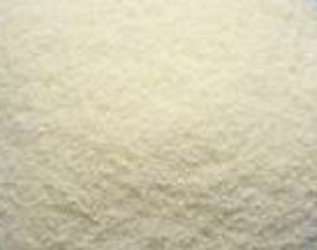Background and overview[1]
The organic amide compound p-chloroacetanilide is an important intermediate in organic synthesis. They are widely used in the preparation of pharmaceutical structural substances, polymer intermediates, optoelectronic materials, flame retardants, and pesticides. The amide bond is one of the most basic chemical structures found in nature. It forms the backbone of important biological peptides and proteins and is present in many natural products and pharmaceutical compounds. In 2011, a sampling of compounds developed by the three major international pharmaceutical companies found that nearly 54% of the compounds contained amide bonds.

Preparation[1]
Method 1: Preparation of p-chloroacetanilide: Take a 50mL reaction bottle, transfer p-chloroacetophenone oxime (0.17g, 1mmol) dissolved in 2mL acetonitrile into the reaction bottle, and add in the reaction bottle under stirring conditions. Add 1 mL of bismuth trifluoromethanesulfonate (0.10 g, 0.15 mmol) in acetonitrile, and finally add 2-3 mL of acetonitrile, and stir the reaction in an 80°C oil bath. After p-chloroacetophenone oxime and bismuth triflate were mixed and stirred, the solution immediately presented a white suspension. TLC (DCM: 100%) monitored the reaction until the reaction was complete, and the reaction lasted for about 5 hours. Stop heating, use a rotary evaporator to spin the solvent to dryness, then add water and DCM for extraction, combine the organic phases, and dry over anhydrous Na2SO4. Filter, concentrate, separate by column chromatography (DCM: 100%), spin dry, pump dry, weigh the dry product and calculate the yield to 80%. mp183-184℃;
1HNMR (400MHz, d6-DMSO, ppm): δ10.04 (s, 1H), 7.59 (d, J=6.0Hz, 2H), 7.31 (d, J=8.0Hz, 2H), 2.02 (s ,3H);
13CNMR (101MHz, d6-DMSO, ppm): 168.86, 138.70, 128.99, 126.91, 120.88, 24.42;
IR (KBr tableting): vC=O=1650.2cm–1.
Method 2: Preparation of p-chloroacetanilide: Mix 113.5mg (0.5mmol) 4-chlorophenyldiazotetrafluoroborate, 0.1mmol copper iodide, 0.5mmol potassium phosphate and 1.0mmol of water was added to the Schlenk tube under a nitrogen atmosphere, 1 mL of acetonitrile was added under air conditions, and the reaction was stirred at 80°C for 12 hours. The yield of the reaction was 68%.
Main reference materials
[1] CN201810141850.1 Use of bismuth triflate as a catalyst for Beckmann rearrangement reaction
[2] CN201810053415.3 A method for preparing organic amide compounds from aryl diazo tetrafluoroborate and nitrile

 微信扫一扫打赏
微信扫一扫打赏

